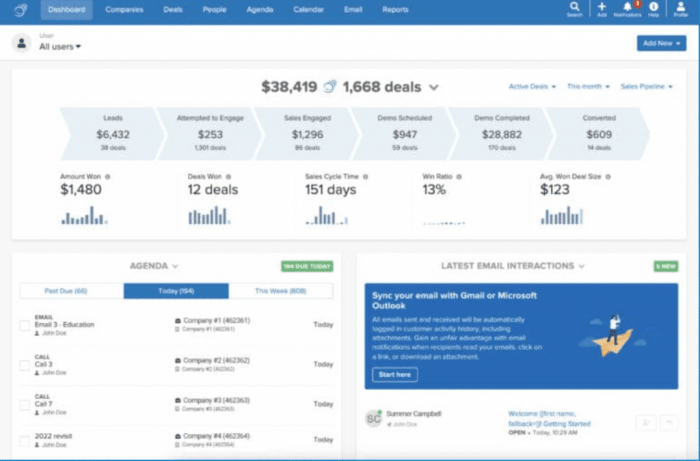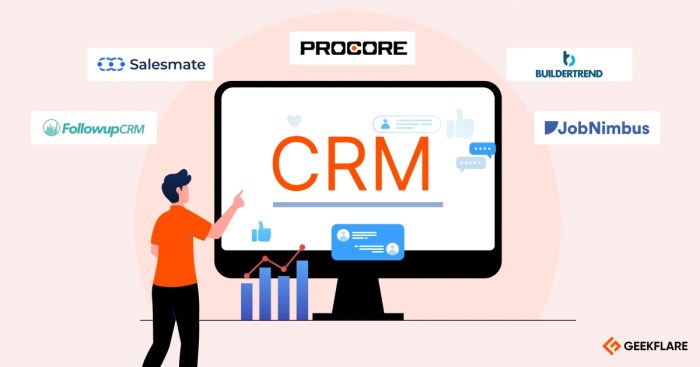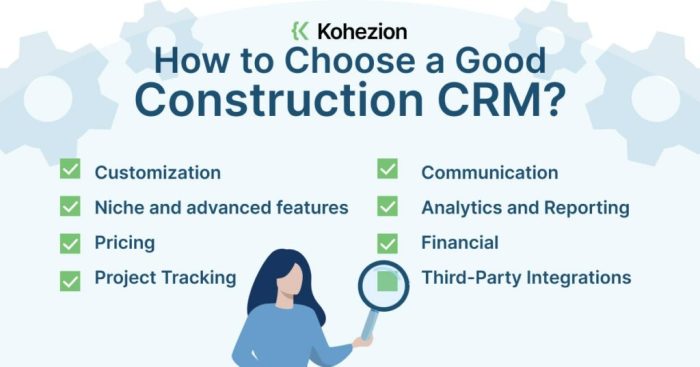The construction industry is notoriously complex, juggling multiple projects, clients, subcontractors, and materials simultaneously. Effective project management is crucial for success, and a robust Construction CRM (Customer Relationship Management) system can be the key to streamlining operations and boosting profitability. This detailed guide explores the best construction CRM software available, helping you choose the ideal solution for your business needs.
Understanding the Need for Construction CRM Software
Before diving into specific software options, let’s examine why a dedicated construction CRM is essential for modern construction businesses. Traditional methods often involve scattered spreadsheets, email chains, and fragmented communication, leading to:
- Missed deadlines: Difficulty tracking project progress and milestones.
- Budget overruns: Inefficient cost tracking and resource allocation.
- Poor communication: Delays and misunderstandings due to lack of centralized information.
- Reduced client satisfaction: Ineffective communication and project management impacting client relationships.
- Lost opportunities: Difficulty managing leads and following up on potential projects.
A construction CRM solves these problems by centralizing all crucial information, automating tasks, and improving communication across the entire team. This leads to improved project management, enhanced client relationships, and ultimately, increased profitability.
Key Features to Look for in Construction CRM Software
Choosing the right CRM requires careful consideration of your specific needs. However, some essential features are common across high-performing construction CRMs:
Project Management Capabilities:
- Detailed project tracking: Ability to track progress, milestones, and deadlines.
- Task assignment and management: Assign tasks to team members and monitor their completion.
- Document management: Centralized storage and access to all project-related documents.
- Cost tracking and budgeting: Monitor expenses against budgets and identify potential overruns.
- Reporting and analytics: Generate reports on project performance, costs, and timelines.
Client Relationship Management:
- Contact management: Store and manage client information, including contact details and communication history.
- Lead management: Track leads, manage follow-ups, and convert leads into clients.
- Communication tools: Integrated communication tools such as email, messaging, and video conferencing.
- Client portal: Provide clients with access to project updates, documents, and communication.
Subcontractor Management:
- Subcontractor database: Manage information on subcontractors, including contact details, qualifications, and performance history.
- Subcontractor communication: Streamline communication with subcontractors regarding tasks, payments, and schedules.
- Payment tracking: Track payments to subcontractors and ensure timely payments.
Integration and Automation:
- Integration with other software: Integrate with accounting software, scheduling software, and other business tools.
- Automation features: Automate repetitive tasks such as email marketing, reporting, and data entry.
Top Construction CRM Software Options: Best Construction Crm Software
The market offers a variety of construction CRM software solutions, each with its own strengths and weaknesses. Here are some of the leading options:
1. CoConstruct
Known for its user-friendly interface and robust project management features. Excellent for smaller to medium-sized construction businesses.
2. Buildertrend
A comprehensive solution with a wide range of features, including client portals, subcontractor management, and robust reporting capabilities. Suitable for larger construction companies.
3. Procore
A leading platform known for its scalability and comprehensive project management capabilities. A popular choice for large-scale construction projects.
4. JobNimbus, Best construction crm software
A cloud-based CRM designed specifically for construction businesses. Offers a strong focus on lead management and client communication.
5. PlanGrid
Focuses on collaboration and project management in the field, with features like mobile access and real-time updates.
Choosing the Right Construction CRM for Your Business
Selecting the best CRM depends on factors like your company size, budget, project complexity, and specific needs. Consider these factors:
- Company size and project volume: Smaller businesses may find simpler solutions sufficient, while larger companies require more robust and scalable systems.
- Budget: CRM software costs vary significantly, so it’s essential to choose a solution that fits your budget.
- Integration capabilities: Ensure the CRM integrates with your existing software and tools.
- User-friendliness: Choose a CRM with an intuitive interface that your team can easily adopt.
- Scalability: Ensure the CRM can grow with your business as your needs evolve.
Frequently Asked Questions (FAQs)
- Q: What is the average cost of construction CRM software? A: Costs vary greatly depending on the features and the number of users. Expect to pay anywhere from a few hundred dollars per month to several thousand dollars per month for enterprise-level solutions.
- Q: Can I integrate my construction CRM with my accounting software? A: Many construction CRMs offer integration with popular accounting software packages. Check the specific software’s capabilities to ensure compatibility.
- Q: How long does it take to implement a construction CRM? A: Implementation time varies depending on the complexity of the system and the size of your business. Expect a few weeks to several months for full implementation.
- Q: What are the benefits of using a construction CRM? A: Benefits include improved project management, enhanced client relationships, increased efficiency, reduced costs, and improved profitability.
- Q: Is cloud-based CRM software better than on-premise software? A: Cloud-based CRMs offer greater flexibility, accessibility, and scalability, making them a popular choice for many construction businesses. However, on-premise solutions may offer greater control over data security for some businesses.
Conclusion
Investing in the right construction CRM software is a crucial step towards improving efficiency, profitability, and client satisfaction. By carefully considering your needs and evaluating the available options, you can find a solution that streamlines your operations and drives your construction business to success. Remember to leverage the features discussed above to maximize your ROI and streamline your workflow.
References
While specific software websites are best for detailed information, general resources on CRM and project management best practices can be found on sites like:
- Gartner (for industry research and analysis)
- ProjectManagement.com (for project management best practices)
Call to Action
Ready to transform your construction business? Explore the top construction CRM software options today and request a demo to see how they can benefit your operations. Don’t let outdated methods hold your business back – embrace the power of technology for a more efficient and profitable future!

Source: niftypm.com
FAQ Summary
What are the key features to look for in construction CRM software?

Source: geekflare.com
Key features include contact management, project management tools (scheduling, task assignment, progress tracking), document management, reporting and analytics, and ideally, integration with other software like accounting or bidding platforms.
How much does construction CRM software typically cost?
Pricing varies widely depending on the features, number of users, and vendor. Expect a range from affordable monthly subscriptions for smaller businesses to more substantial costs for enterprise-level solutions with extensive customization.

Source: kohezion.com
Can CRM software help improve client relationships?
Absolutely. A CRM system centralizes all client communication and project details, allowing for more personalized interactions and proactive updates. This leads to increased client satisfaction and stronger relationships.
Is CRM software difficult to implement?
Implementation complexity depends on the chosen software and the size of the company. Many vendors offer training and support to ease the transition. Starting with a smaller-scale implementation and gradually expanding functionality is often a good approach.
